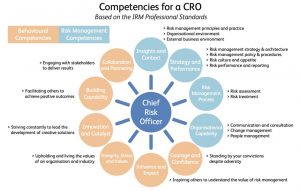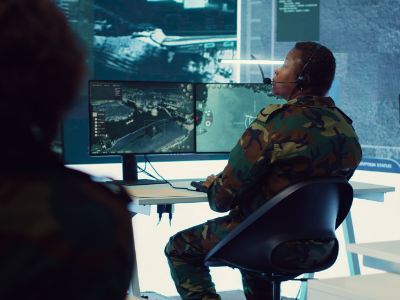Effective risk leadership is an essential component of a healthy risk culture. Corporate governance codes around the world have underlined that effective risk management requires the right people and resources to be in place. They have also emphasised the importance of clear accountability for this function. Ultimately, the responsibility for risk management rests with the board, but that board needs to have confidence that they are delegating day-to-day responsibility to a suitably competent person, who will also be responsible for giving them the highest quality advice to support risk-based decision-making. An excellent risk management function, with a wise and competent leader, will add value by allowing the organisation to achieve objectives by exploiting opportunities and by taking the appropriate amount of risk, thus protecting people, assets and reputation.
IRM’s professional standards set out both the technical risk management competencies and the behavioural competencies required for risk professionals working at different career levels, ranging from junior support level up to leadership level. The professional standards are the IRM’s framework to support qualifications, training, and continued professional development for individuals. The leadership level covers roles such as CRO risk officer and Directors or Heads of Risk Management.
Those operating at this level are typically responsible for creating an organisation’s risk strategy and providing oversight of risk matters. They will be influencing and informing the governing body and decision-makers on risk management strategies and developing a healthy risk culture. Beyond their immediate employment, they will be of such a status in the wider community as to influence the direction and profile of risk management and the profession.

Questions to ask (Note whether the candidate gives their answers in something like the ‘STAR’ format – focusing on Situation, Task, Action, and Result)
Courage and confidence
- Describe an occasion when you did something that went against what other people, particularly more senior people, wanted or thought.
- Can you give an example where you were set on a particular strategy or outcome and had to change your mind?
Influence and impact
- Can you give an example of a situation where you had to solve a problem without the authority to make a definite decision yourself?
- How do you typically lead and support your colleagues and team members?
Integrity, ethics and values
- Can you give an example where you favoured doing the right thing over following the easiest path?
- Have you ever been in a situation of conflict of interest?
Innovation and catalyst
- What is the innovation you are most proud of in the last two years?
- How did you use risk analysis to help your colleagues better understand a situation and therefore be able to grasp an opportunity and gain a competitive advantage?
Building Capability
- What qualifications/titles do you hold specifically in enterprise risk management (eg: IRM)?
- How have you raised the standard of your team’s performance?
- How do you enable learning in your teams and integrate it into performance-led environments?
Collaboration and partnering
- Can you think of a relationship that you had to proactively work hard to improve?
- Describe your key internal and external stakeholders and relationships. What value do you bring to them and what do they get from you?
Download the IRM’s Professional Standards here.












